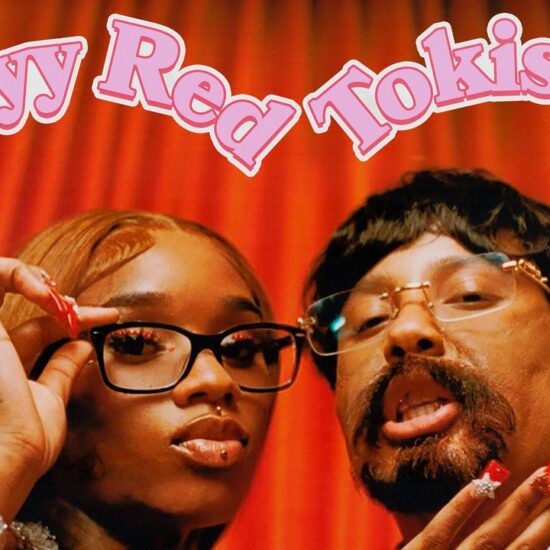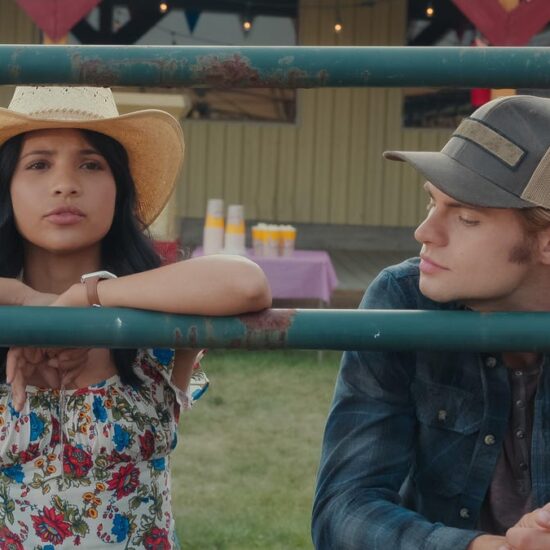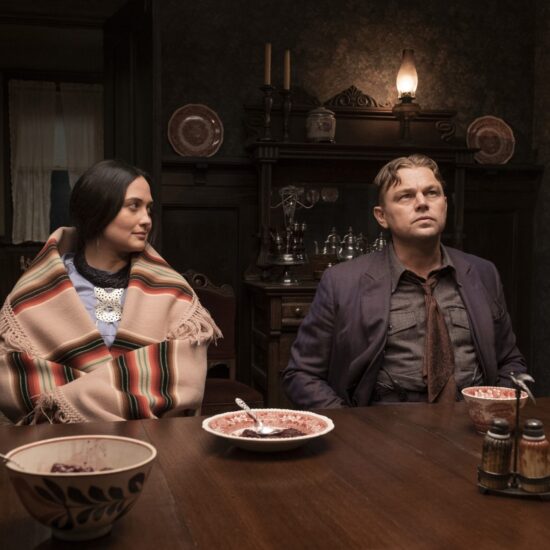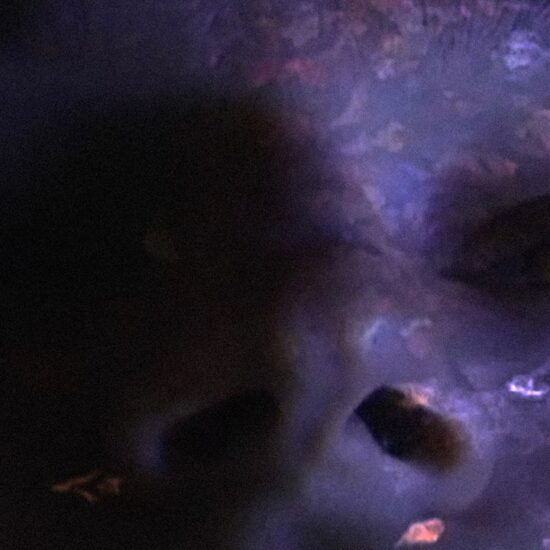
Vikram Vedha, Review: Gang gang, bang bang
There are only a handful of characters in Vikram Vedha who do not wield guns, swords or any ‘weapon’ they can lay their hands on. Almost all of them die. And what about those who do wield guns and makeshift weapons? They meet their fate too, except for…Rarely has a film let loose a such a fusillade of bullets, from all sorts of hand-guns as well as AK47s, as in this film. And rarely have we seen so many corpses tumble left, right and centre. The gangs increase from one to two while a Mumbai gang joins the fray, making it three. Counting the police force that is out to get them all, you have a four-cornered contest. And while the gangs fight conventionally, albeit often using unconventional weapons, the police often resort to the notorious method of fake ‘encounter’ killings, to eliminate most wanted criminals. Shot at a frenetic pace, simulating real-time incidents, Vikram Vedha is flawed on logic, but high on octane. It has the background of a mythical tale, which arouses curiosity, though the link is tenuous. A good representative of the gangster genre, it might be worth a watch, and will keep you excited for the better part.
On a tip, the Uttar Pradesh police squad, led Senior Superintendent of Police (SSP) Abbas, and assisted by officer Vikram, raid a house where gangsters are hiding. Vikram, who is very close to Abbas, takes charge. They are met with a lot of fire power, but manage kill all of them. The last man standing, a youth, is unarmed, and claims he is innocent. Vikram shows no mercy and kills him too, but makes it look like an encounter, planting a gun in his hand and spraying bullets from it, with one of which he injures a member of his own team. But the squad fails to nab Vedha, the gang-lord, the killing machine, who has committed 16 murders, and was supposed to be hiding there.
When the squad is leaving for another place where they have information that ingenious Vedha, the man who jumped three storeys and sliced a man on the road into half with a sword, is hiding, he walks into the police station and surrenders. Under basic, conventional interrogation, Vedha does not speak at all. Then, when Vikram comes to interrogate him, he starts a cat and mouse game, narrating incidents from the past that have a bearing on the present circumstances. This is in the vein of the popular mythical tale of Vikram and Betaal, itself based on Betaal Pachcheesee, which was a highly watched television series in India, some 40 years ago. The dilemma is that Vikram needs him and also needs to get rid of him. Just then, Vikram’s wife, Advocate Radhika, walks into the police station, with Vedha’s bail papers. Vedha is released, but Vikram is bent on relentless pursuit, having decided that Vedha will be his own 19th encounter killing, keeping ahead of the criminal’s figure of 16. But the ‘Betaal’ Vedha has a few more storied to tell Vikram, and Vikram finds answers to some of the most elusive questions in these flashback tales.
A remake of the 2017 Tamil film of the same name, Vikram Vedha is written and directed by Pushkar-Gayathri, the duo that has made four other Tamil films, their first two being comedies. The original Tamil version made more than five times its investment at the box-office, which must have egged the husband-wife duo on to make a remake. But Madhavan, who is a Hindustani actor as much as he is a Tamil actor, if not more, was not retained in the Hindustani version. Neither was Vijay Sethupathi, the latter choice being more than expected. In March 2018, Pushkar–Gayathri announced that they would direct the film’s Hindi remake, to be produced again by YNOT Studios and co-produced by Plan C Studios.
In August 2019, it was confirmed that Saif Ali Khan will star as the police officer and Aamir Khan as the gangster. Shooting was planned to start in February 2021, but after production delays due to the COVID-19 pandemic in India during which the writers also re-worked on the script, Aamir left the project in November 2020 reportedly, due to scripting issues. Shortly thereafter, the makers signed Hrithik Roshan to replace him. One can only imagine what would the film look like with Aamir in place of Hrithik, but on his own merit, Hrithik is not any notch lower. Saif’s persona come across as a more pleasant surprise, as his single-minded devotion to a cause is challenged by Vedha’s ambiguous, grey area riddles. The makers have succeeded in pitching one against the other in a complementary way. I am sure Hrithik’s performance in Dhoom 2 as Aryan/Mr. A would have weighed in his favour.
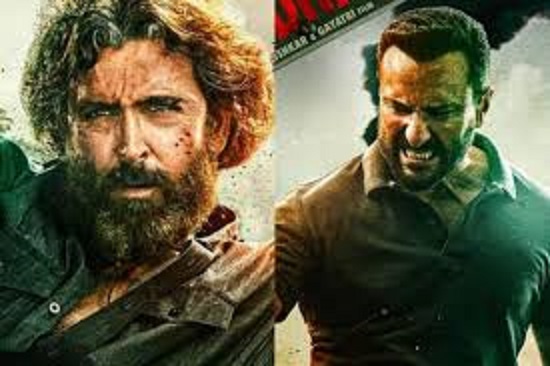
Besides the chases and the battles, the script has incorporated a romantic angle between Shatak (Vedha’s young brother) and Chanda, his older school friend. There are also several scenes of bonding between Vedha and Shatak. These are moderately interesting. However, the entire track of Vikram’s wife Radhika being an advocate and taking up Vedha’s case, getting a 16 times killer bail in a jiffy, protecting her client from her husband, and Vikram and Radhika’s romantic dalliances and professional differences, given a fair amount of footage, ring false. Besides, the number of times Vikram gets into close proximity of dreaded criminals, never mind if they are hand-cuffed, defies all logic. As dies the fact that the police do not torture Vedha at all, subjecting him to mere Q & A sessions, and there are no As.
The betrayals and territorial wars are all expected, except for the gang being ‘imported’ from Mumbai by a betrayer to settle scores. The ambiguous philosophy propounded by Vedha and the hard-nosed responses by Vikram, using objects like sticks and glasses, fail to have the impact they were potentially capable of. The climax will again bring you back to the ambiguous riddles of Betaal. Benazir Ali Fida and Manoj Muntashir’s dialogue keeps pace with the racy film, with the occasional jabs at philosophy about things being all black and white only, Vikram’s credo, and there being grey areas, the point of view of Vedha. Characters speak the language that is expected from their parts. Only, one wonders whether the dialect is pure Poorbee or a mixture of Poorbee and Bhojpooree.
This is a cut in ice Saif Ali Khan, not the one who was known for romance and comedy. What he lacks in height, he makes up in muscle. And his dialogue delivery is nothing like we have heard in earlier films. It is possible that it has been digitally mastered, but it suits the character to a t. Only in the suggested sexual scenes with his wife is he a bit awkward. As far as voice and dialogue delivery is concerned, Hrithik too scores very high. But sometimes he looks too cute to be doing those unmentionable things that he does, his scraggly beard notwithstanding. Both are top class in their action scenes. Hrithik gets to dance, an add on that is gratis and not organic to the story, as only Hrithik can, in the song which is a paean to alcohol, and called ‘Alcoholia’. Radhika Apte, with her signature voice and bold image, is not able to pull off the advocate bit effectively.
Rohit Saraf has a good outing as Shatak, often at crossroads. Yogita Bihani as Chanda, a young girl and later an adult, with ambivalent values, is a good choice. Sharib Hashmi as Babloo is natural. One wonders whether he is so short in real-life or has been made to look like a dwarf using technology. Incidentally, while fighting a very tall man, Vedha refers to him as Lilliput! There is an actor-writer in the Indian film industry who is vertically challenged and goes by the name of Liliput. Satyadeep Mishra impresses as SSP Abbas. Good support comes from Manuj Sharma as Constable Dubey, Sudhanva Deshpande as Inspector General of Police, Govind Pandey as Parshuram Pandey (who looks suitably menacing and like the Don he plays), Bhupender Negi as Sub Inspector Giri, Dev Chauhan as Inspector Prabhakar, Kapil Sharma as Head Constable Yashwant, Vijay Sanap as Sub Inspector Ranjan, Saurabh Sharma as Sub Inspector Ansari, Rati Shankar Tripathi as Shiv Parsad, Bushan Vikas as Ravi and Shahidur Rehman as Sanki.
Some great establishing shots, appealing top angles a là drone, thrilling chases and fights through narrow lanes and unusual angles are the hallmarks of cinematography P. S. Vinod. A large part of the credit for the roller-coaster pace should go to editor Richard Kevin A. However, this also gives the impression that the film was shot in real-time, with a kind of monotone associated with it, scene after scene coming across as a continuum. Sam C. S.’s background score enhances the ambience and surfaces almost throughout the film, in various forms, with accompanying varying and appropriate sound effects. Vishal-Shekhar are in good form as they compose ‘Alcoholia’ and ‘Bande; both are well picturised too. It pains me to hear talented actor Vijay Raaz being summoned to do yet another voice over. He does a good job, but, nevertheless, I would rather see him in front of the camera.
A pulsating first half and an uneven second half make the 156 minute (the PR agency told me it was 138 minutes long; the Tamil version was 147 minutes long) film just about watchable. The side-tracks must have posed a dilemma. Had they stuck to the basics, gang, bang, it might have been action without respite. Would that have worked better? Let this be another ambiguous question, in the vein of the riddles put to Vikram by Vedha.
Rating: ***










